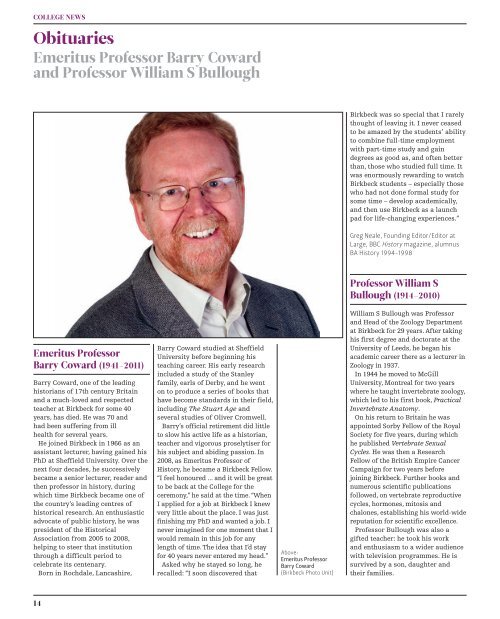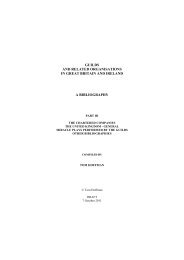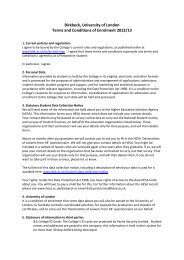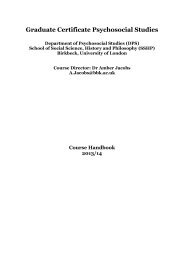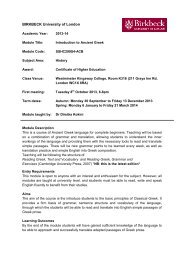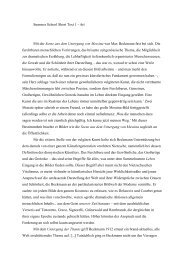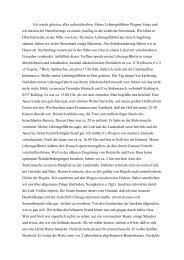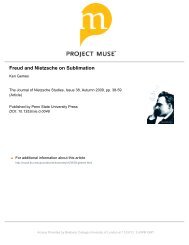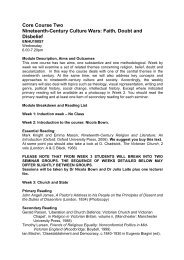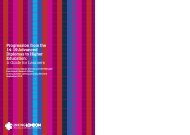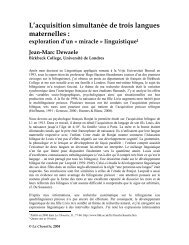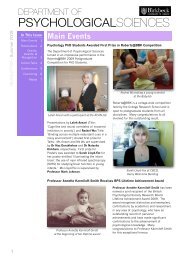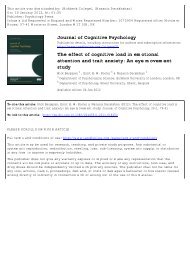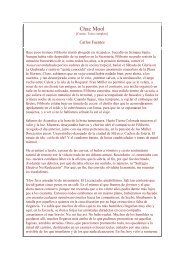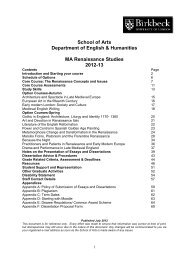Spring 2011 - Birkbeck College
Spring 2011 - Birkbeck College
Spring 2011 - Birkbeck College
You also want an ePaper? Increase the reach of your titles
YUMPU automatically turns print PDFs into web optimized ePapers that Google loves.
COLLEGE NEWS<br />
Obituaries<br />
Emeritus Professor Barry Coward<br />
and Professor William S Bullough<br />
Emeritus Professor<br />
Barry Coward (1941–<strong>2011</strong>)<br />
Barry Coward, one of the leading<br />
historians of 17th century Britain<br />
and a much-loved and respected<br />
teacher at <strong>Birkbeck</strong> for some 40<br />
years, has died. He was 70 and<br />
had been suffering from ill<br />
health for several years.<br />
He joined <strong>Birkbeck</strong> in 1966 as an<br />
assistant lecturer, having gained his<br />
PhD at Sheffield University. Over the<br />
next four decades, he successively<br />
became a senior lecturer, reader and<br />
then professor in history, during<br />
which time <strong>Birkbeck</strong> became one of<br />
the country’s leading centres of<br />
historical research. An enthusiastic<br />
advocate of public history, he was<br />
president of the Historical<br />
Association from 2005 to 2008,<br />
helping to steer that institution<br />
through a difficult period to<br />
celebrate its centenary.<br />
Born in Rochdale, Lancashire,<br />
14<br />
Barry Coward studied at Sheffield<br />
University before beginning his<br />
teaching career. His early research<br />
included a study of the Stanley<br />
family, earls of Derby, and he went<br />
on to produce a series of books that<br />
have become standards in their field,<br />
including The Stuart Age and<br />
several studies of Oliver Cromwell.<br />
Barry’s official retirement did little<br />
to slow his active life as a historian,<br />
teacher and vigorous proselytiser for<br />
his subject and abiding passion. In<br />
2008, as Emeritus Professor of<br />
History, he became a <strong>Birkbeck</strong> Fellow.<br />
“I feel honoured ... and it will be great<br />
to be back at the <strong>College</strong> for the<br />
ceremony,” he said at the time. “When<br />
I applied for a job at <strong>Birkbeck</strong> I knew<br />
very little about the place. I was just<br />
finishing my PhD and wanted a job. I<br />
never imagined for one moment that I<br />
would remain in this job for any<br />
length of time. The idea that I’d stay<br />
for 40 years never entered my head.”<br />
Asked why he stayed so long, he<br />
recalled: “I soon discovered that<br />
Above:<br />
Emeritus Professor<br />
Barry Coward<br />
(<strong>Birkbeck</strong> Photo Unit)<br />
<strong>Birkbeck</strong> was so special that I rarely<br />
thought of leaving it. I never ceased<br />
to be amazed by the students’ ability<br />
to combine full-time employment<br />
with part-time study and gain<br />
degrees as good as, and often better<br />
than, those who studied full time. It<br />
was enormously rewarding to watch<br />
<strong>Birkbeck</strong> students – especially those<br />
who had not done formal study for<br />
some time – develop academically,<br />
and then use <strong>Birkbeck</strong> as a launch<br />
pad for life-changing experiences.”<br />
Greg Neale, Founding Editor/Editor at<br />
Large, BBC History magazine, alumnus<br />
BA History 1994-1998<br />
Professor William S<br />
Bullough (1914–2010)<br />
William S Bullough was Professor<br />
and Head of the Zoology Department<br />
at <strong>Birkbeck</strong> for 29 years. After taking<br />
his first degree and doctorate at the<br />
University of Leeds, he began his<br />
academic career there as a lecturer in<br />
Zoology in 1937.<br />
In 1944 he moved to McGill<br />
University, Montreal for two years<br />
where he taught invertebrate zoology,<br />
which led to his first book, Practical<br />
Invertebrate Anatomy.<br />
On his return to Britain he was<br />
appointed Sorby Fellow of the Royal<br />
Society for five years, during which<br />
he published Vertebrate Sexual<br />
Cycles. He was then a Research<br />
Fellow of the British Empire Cancer<br />
Campaign for two years before<br />
joining <strong>Birkbeck</strong>. Further books and<br />
numerous scientific publications<br />
followed, on vertebrate reproductive<br />
cycles, hormones, mitosis and<br />
chalones, establishing his world-wide<br />
reputation for scientific excellence.<br />
Professor Bullough was also a<br />
gifted teacher: he took his work<br />
and enthusiasm to a wider audience<br />
with television programmes. He is<br />
survived by a son, daughter and<br />
their families.


